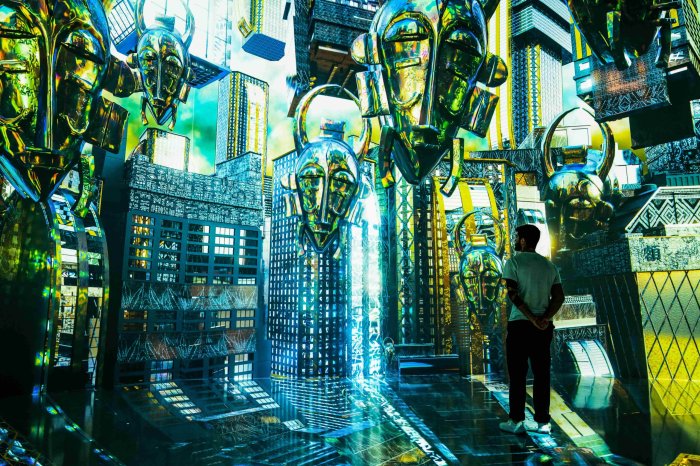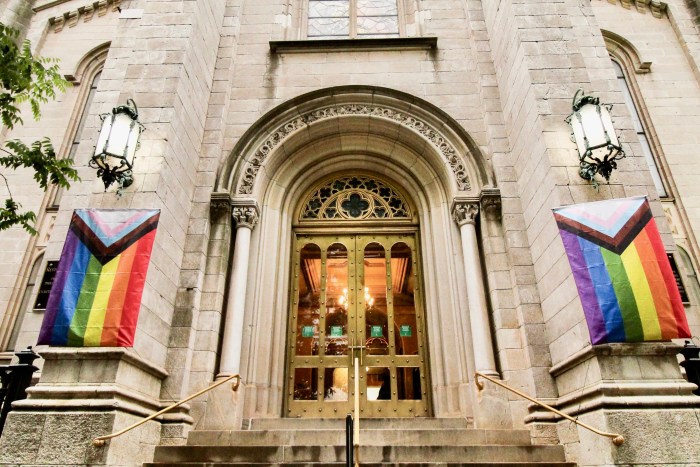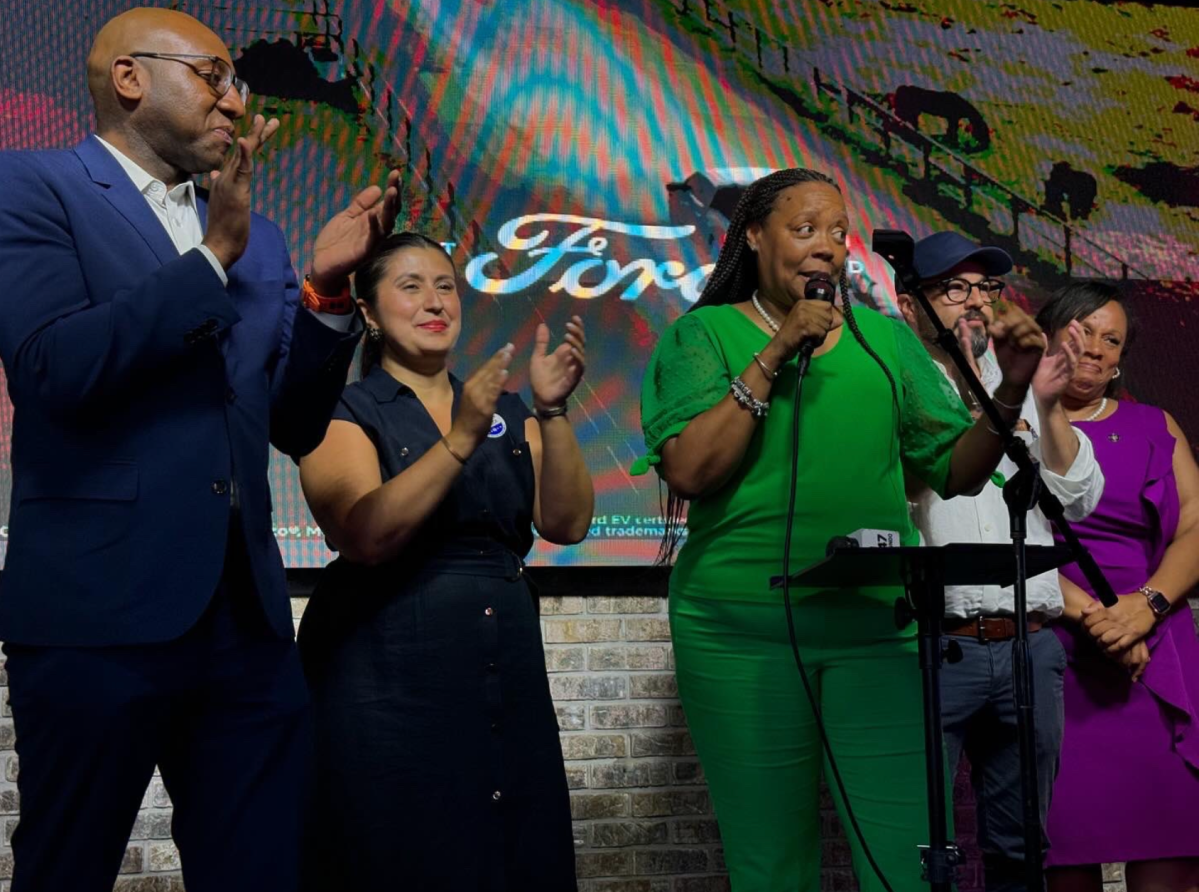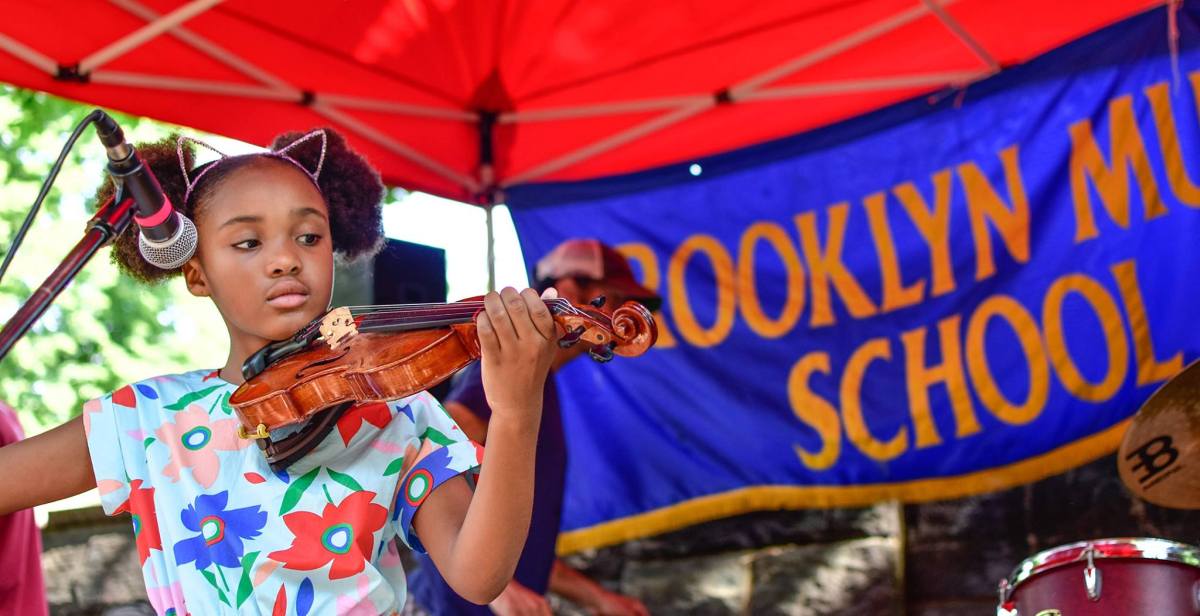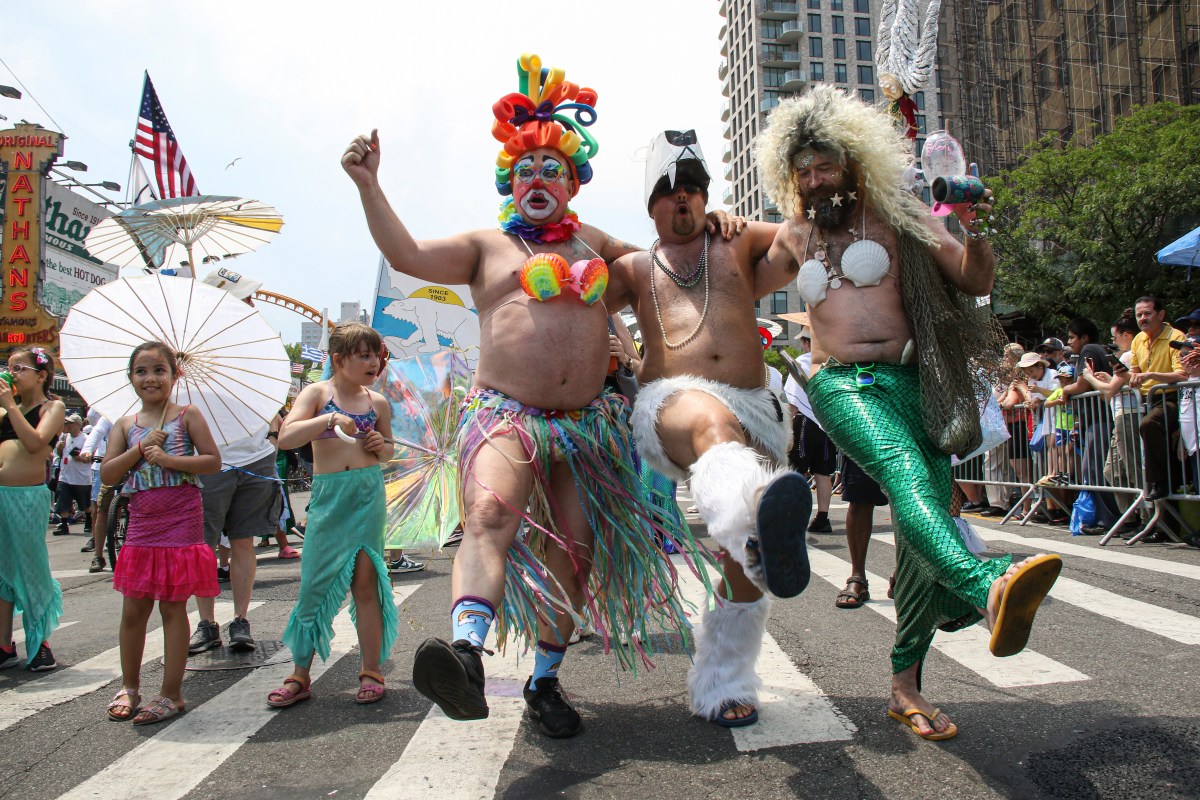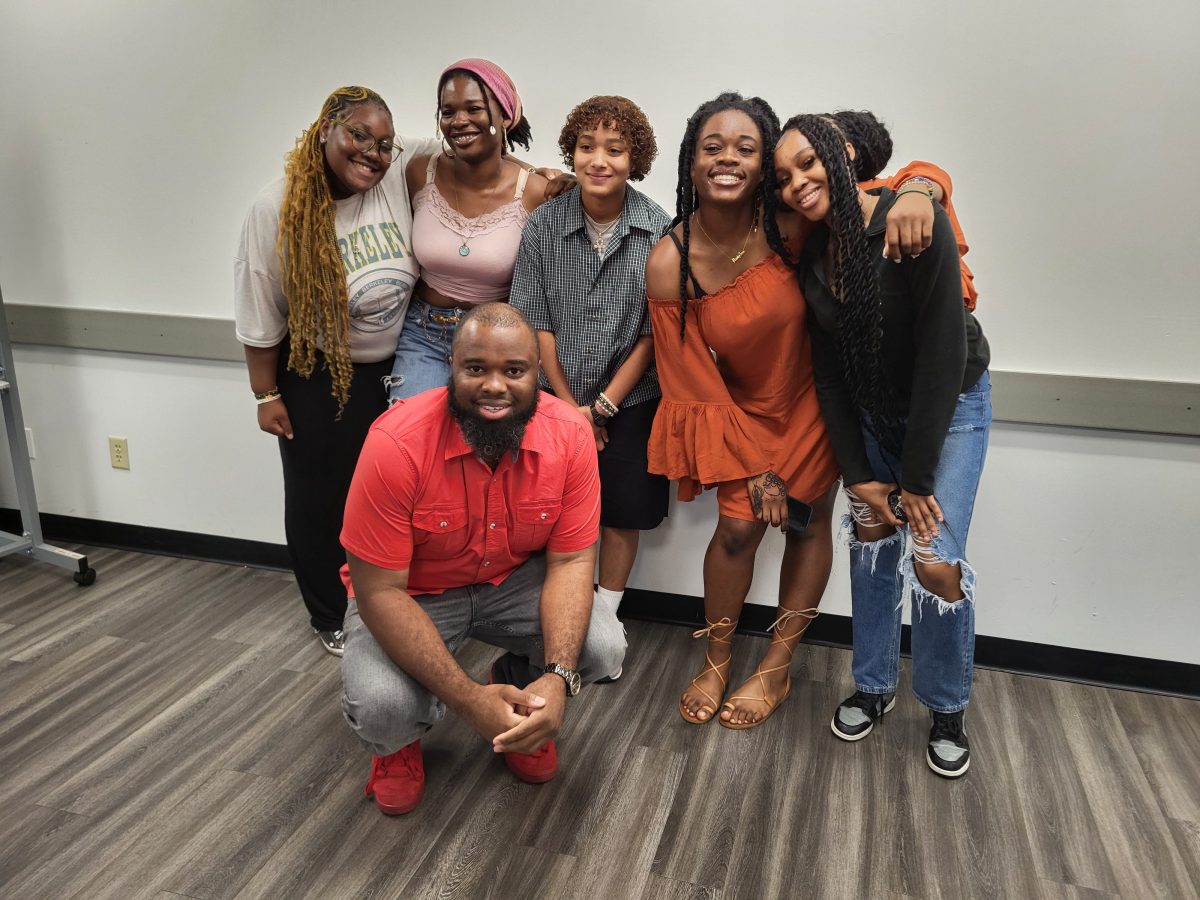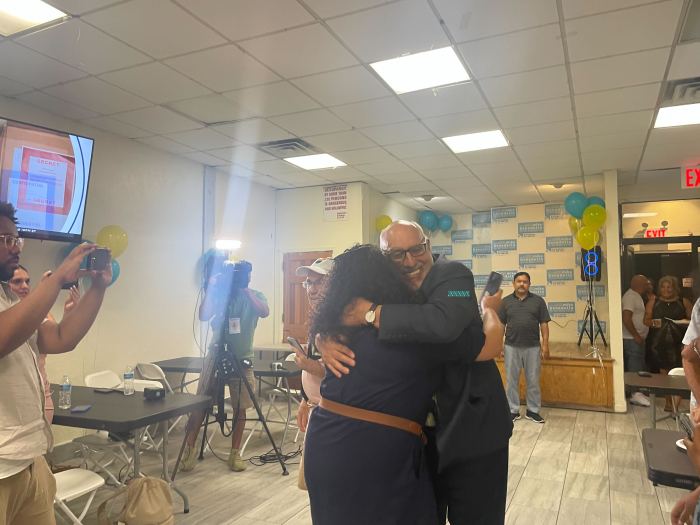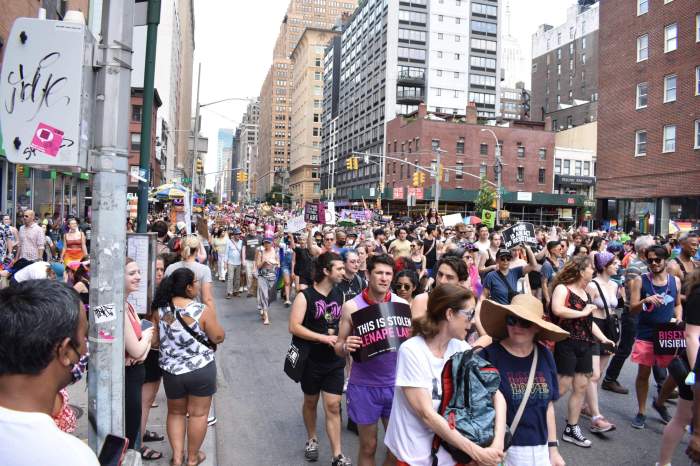By JERRY TALLMER
What good is sitting alone In your room? Come hear the music play. Life is a Cabaret, old chum, Come to the Cabaret.
Put down the knitting, The book and the broom. Time for a holiday. Life is a Cabaret, old chum, Come to the Cabaret.
Fred Ebb didn’t write those words for Natasha Richardson, who was 3 1/2 years old when “Cabaret” first opened on Broadway in 1966, but he might as well have, because if anybody ever saw life as a cabaret — one that could stop spinning at any moment — it was certainly the oldest daughter of Tony Richardson and Vanessa Redgrave.
“Of course,” she had said one afternoon four years ago over a cappuccino in a little trattoria near where she and Liam and the two kids lived in the West 70s — “of course people in life are a mass of contradictions. I work out in a gym and yet I smoke,” she said with a dismissive downward sweep of one hand. “It’s never just one thing but a chain of events, like an airplane crash — a spark somewhere, then a fuse blows, and then an engine falls off.”
Or you take a small spill on a beginner’s ski slope at a resort north of Montreal, and when an ambulance arrives you laugh and say something like: “Oh, it’s nothing, no harm done” as you wave the emergency guys away.
And then, an hour later, or three hours later, the head-splitter hits you.
The interview in that West 70s trattoria — it too is gone now — had been when Natasha Richardson was preparing to tackle the role of Blanche Dubois in a Broadway reprise of “A Streetcar Named Desire.”
All in pink and white, from pearls (four huge strands) to Marlene Dietrich pants suit — “a knockoff I bought in Shanghai when making a film there” — she looked purely radiant but spoke with fatalistic cool about her propensity for playing trapped, doomed, desperate women, like Anna Christie, Sally Bowles, Zelda Fitzgerald, Patricia Hearst, Catherine Holly of “Suddenly Last Summer,” and now the ultimate Tennessee Williams heroine, Blanche Dubois of “Streetcar.”
“Yes,” she’d said, “there is an affinity, and I’ve since played Elida in Ibsen’s ‘The Lady From the Sea’ at the Almeida [in London]” — a role once fulfilled by her mother, here in the Village at Bleecker Street’s Circle in the Square, under the direction of Vanessa Redgrave’s husband, Natasha’s father, Tony Richardson.
“And,” said Vanessa Redgrave’s daughter, “I’ve done a film called ‘Asylum,’ which Jonathan Demme was to direct, but didn’t, but at the time he said to me: ‘Why do you want to play women who are in such a dark place, over the edge?’ and I said: ‘Because there but for the grace of God… .”
It was in the 1993 Broadway reincarnation of Eugene O’Neill’s stormy 1921 Pulitzer-winning “Anna Christie” that Natasha Richardson was thrown face to face with roving stone Liam Neeson. Their seminaked onstage embraces were too socko to be taken as mere make believe, though, with actors you never know. But I had previously seen Natasha, at a small private party, being markedly distant toward her then-husband, British film producer Robert Fox, so it didn’t too much surprise me when she and Liam actually got married.
She could be cold, she could be hot, she could be a lot of things, as God knows she was as the Sally Bowles she powered into the “Cabaret” that, 32 years after its original opening, was reborn at Broadway’s Studio 54. It won her the Best Actress Tony Award.
In our time we have had “this perfectly marvelous girl” Sally Bowles (Jill Haworth in the original), a wide-eyed lost-waif Sally Bowles (Liza Minnelli in the movie) and a down-and-dirty gutbucket Sally Bowles (Natasha Richardson). You pays your money and you makes your choice.
Or you go back through Van Druten (“I Am a Camera,” 1951) to Isherwood (“Berlin Stories,” 1945) to now, and you still end up on a snow slope somewhere north of Montreal.
Of a dozen plays directed on Broadway by Tony Richardson, and some 30 British films he directed from the 1950s into the 1970s, none was more brilliant than “The Entertainer” (1960), with Laurence Olivier as hollow-eyed, hollow-souled Archie Rice in John Osborne’s anti-establishment cri de coeur.
Tony Richardson, father of Natasha and Joely Richardson, died of AIDS-related causes in 1991.
In that 1995 interview on the Upper West Side, I had toward the end, fenced around, trying to get out of my mouth the words for some link between the ghoulishly murdered Sebastian Venable of “Suddenly Last Summer” and “your father, who — ”
“ — was bisexual, yes,” she finished the sentence for me.
Did you know, growing up?
“I think I was about 11 when I found out, when it really hit home,” she said.
And?
“I’m ashamed enough to say that I was shocked and upset. Children don’t want their parents to be different from all other parents.”
The interviewer did not then know — nor did she tell him — that the mother of (now) 13-year-old Micheal Neeson and 12-year-old David Neeson had over the years given millions to the fight against AIDS.
The daughter of Tony Richardson and Vanessa Redgrave, granddaughter of Sir Michael Redgrave and Rachel Kempson, was named after the young heroine of Tolstoy’s “War and Peace.” Royalty knows royalty, and so do we when we see it or meet it.








